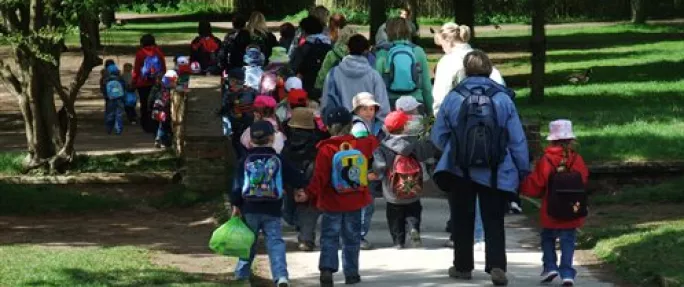Six tips for residential trip success
You spent the morning canoeing in the rain and the afternoon coaxing 60 children along a four-mile hike. Lunch was a limp cheese sandwich eaten in the drizzle and your after-dinner plans involve some team-building games before a bedtime of overexcitement and tears. Your night will be spent night sitting in a corridor, intermittently ordering children to return to their bunk beds.
Welcome to the residential trip, as described by primary teacher Jo Brighouse in this week’s issue of TES. While many teachers dread the annual pilgrimage to a suitably remote outbound centre, Brighouse says teachers should embrace the opportunities these muddy adventures present.
“It’s a great opportunity to really get to know your pupils,” she explains, although she concedes that it is also “one of the biggest self-inflicted headaches in teaching”.
So how do you avoid a calamity and ensure a productive week in the wilds? Brighouse offers six tips for survival.
1. Be sensitive to homesickness
For some students, being away from home overnight is completely overwhelming. Keeping them busy helps. If a child is really suffering, assign a couple of their kindest friends to looking after them; don’t try to comfort them yourself too much, as extra attention from adults who aren’t their parents can exacerbate the problem.
2. Make sure families keep their distance
For many parents, this is the first time that they have been parted from their child overnight. The anxiety and stress often comes from them, not their children. You can help to reassure parents with a pre-trip meeting in school and a designated “phone home” time every day (preferably using a payphone).
3. Push pupils’ boundaries
A residential should be an opportunity for children to broaden their horizons and notch up new experiences. Try to get every pupil to do something outside their comfort zone, whether it’s abseiling, canoeing or just being in the countryside (some of the kids will never have been this far from a KFC before).
4. Stay strict
Children need you to maintain the same level of discipline that you do in the classroom. Quite apart from the health and safety considerations, consistent discipline will help them to settle and feel secure.
5. Show your human side
In school, you may be a fervent follower of the “don’t smile before Christmas” rule, but on a residential it’s OK to show your human side. You will never be more in loco parentis than you are at this moment, so the children need to see that you care about them and you are going to look after them.
6. Stockpile the caffeine
Residentials are knackering, but they are always worth it and often bring out the best in both adults and children. But that doesn’t mean you can survive without help - strongly caffeinated drinks at regular intervals are a necessity.
Read the full article in 30 January edition of TES on your tablet or phone or by downloading the TES Reader app for Android or iOS. Or pick it up at all good newsagents
Keep reading for just £1 per month
You've reached your limit of free articles this month. Subscribe for £1 per month for three months and get:
- Unlimited access to all Tes magazine content
- Exclusive subscriber-only stories
- Award-winning email newsletters




